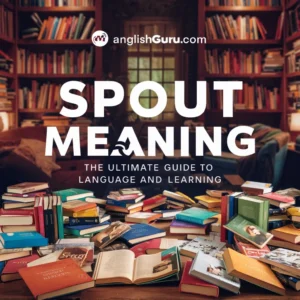Language is constantly evolving, and the phrases we use in emails, texts, and professional communication can shape how others perceive us. One such phrase that often appears in business correspondence is “in regards to.” While widely recognized, this expression can sometimes feel overly formal or repetitive if used too often.
This article explores the meaning of “in regards to,” its common usage, and 16+ professional, polite, and casual alternatives. You’ll also find real-life examples—especially for texting—that show how these variations can fit into different contexts. Whether you’re writing a formal work email, a message to a colleague, or a casual text to a friend, you’ll walk away with flexible wording options that elevate your communication.
What Does “In Regards To” Mean?
The phrase “in regards to” is typically used to introduce the subject or purpose of communication. It is a formal way of saying “about,” “concerning,” or “with respect to.”
For example:
- “I’m writing in regards to your job application.”
- “This email is regarding the upcoming meeting.”
While it gets the message across, many language experts note that “regard” without the “s” is grammatically preferred. For instance, “your request” is considered more polished than “in regards to your request.”
Still, both versions are widely understood, and in casual conversation, the difference is rarely noticed.
Why Look for Alternatives?
There are several reasons why people prefer using alternatives to “in regards to”:
- Tone Flexibility – Some phrases sound too stiff or overly formal in casual situations.
- Clarity – Shorter alternatives like “about” or “regarding” feel more natural.
- Professionalism – Business settings often require polished wording that avoids clichés.
- Variety – Repetitive use of the same phrase in emails or texts can feel robotic.
By learning multiple options, you can adapt your tone depending on the audience and context.
16+ Polite, Professional, and Casual Alternatives to “In Regards To”
Below are 16+ alternatives broken into categories: formal, neutral, and casual. For each, you’ll find explanations and usage examples.
1. Regarding
One of the most common and widely accepted alternatives. Short, professional, and versatile.
Example (Email):
- “I’m reaching out regarding your recent proposal.”
This is ideal for business communication because it balances professionalism with brevity.
2. Concerning
More formal than “about,” but softer than “in regards to.”
Example (Email):
- “This letter is concerning the budget adjustments.”
Best suited for official letters or HR-related messages.
3. In Relation To
A formal alternative often used in legal, financial, or academic writing.
Example:
- “In relation to the data you submitted, further clarification is needed.”
It signals seriousness and precision.
4. About
The simplest, most casual, and commonly used option.
Example (Text):
- “Hey, just texting about our weekend plans.”
Perfect for informal messages, but can also be used in professional contexts if the tone allows.
5. With Respect To
Polite and formal; often used when acknowledging or addressing a matter thoughtfully.
Example (Work Email):
- “With respect to your concerns, we will arrange a follow-up meeting.”
6. In Connection With
Used when linking information or referencing a related topic.
Example:
- “I am writing in connection with the training program scheduled next week.”
Works well in official communication.
7. As For
Casual but still acceptable in semi-professional settings.
Example (Text):
- “As for dinner tonight, let’s go with Italian.”
8. In Reference To
Polished, professional, and often used in academic or official settings.
Example (Email):
- “In reference to your application, we’ll notify you by next week.”
9. On the Subject Of
Slightly formal but approachable.
Example:
- “On the subject of your request, I’d like to clarify a few details.”
10. Touching On
More conversational and friendly.
Example (Meeting Note):
- “Touching on the project delays, here are some updates.”
11. About
Highly formal and often used in legal, technical, or academic writing.
Example:
- “The policies about remote work have been updated.”
12. On the Matter Of
Formal, thoughtful, and precise.
Example:
- “On the matter of your promotion, the committee will decide soon.”
13. About
The grammatically correct version of “in regards to.”
Example (Email):
- “About your feedback, we are revising the proposal.”
14. Speaking Of
Casual and conversational.
Example (Text):
- “Speaking of movies, have you seen the new release?”
15. On Account Of
Used to explain or justify something, often in more formal situations.
Example:
- “The delay occurred on account of technical issues.”
16. Relating To
A neutral option is often used in contracts or formal writing.
Example:
- “Relating to your request, further approval is needed.”
17. As Concerns
Less common but formal and precise.
Example:
- “As concerns the quarterly budget, adjustments will be made.”
How to Choose the Best Alternative
- For Professional Emails: Use regarding, with respect to, in reference to, or about.
- For Legal or Academic Writing: Use about, in relation to, relating to.
- For Everyday Conversations: Use about, speaking of, as for.
- For Neutral Communication: Use concerning, in connection with, or on the subject of.
11 Texting Examples Using Alternatives to “In Regards To”
Here are 11 user-friendly texting examples that feel natural and casual, while still optimized for clear communication.
- “Hey, just texting about tomorrow’s meeting time.”
- “Regarding your invite, I’ll confirm later today.”
- “Speaking of dinner, are we still on for 7?”
- “As for the movie night, I’m in!”
- “Touching on the project, let’s finalize it soon.”
- “Concerning the group trip, I’ll book my ticket tonight.”
- “On the subject of your question, yes, I agree.”
- “About the files, I’ll send them now.”
- “Relating to our plan, let’s set a reminder.”
- “In reference to the notes, I’ll share updates soon.”
- “Speaking of birthdays, did you get Leo’s gift?”
These examples show how alternatives can keep your messages clear, natural, and context-appropriate.
Final Thoughts
The phrase “in regards to” is common in professional and casual communication, but it isn’t always the most natural or grammatically precise choice. By exploring 16+ alternatives, you gain the flexibility to adapt your tone, avoid repetition, and express yourself more effectively.
Whether you’re writing a formal business email, an academic report, or a casual text, choosing the right alternative helps you sound polished, approachable, and confident.





